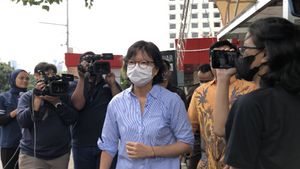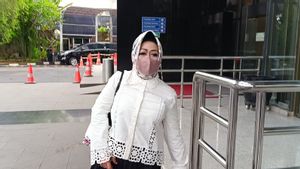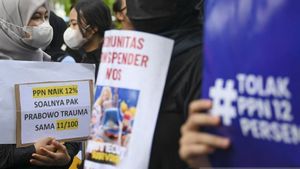JAKARTA - The results of a survey by Indonesian Political Indicators stated that Anies Baswedan's electability in DKI Jakarta is the highest among other names as a presidential candidate (candidate).
"As a presidential candidate, he (Anies) is superior. Top of mind, 28 percent in DKI Jakarta, followed by Ganjar 21.3 percent, and the third Mr. Prabowo (11 percent)," said Executive Director of Indonesian Political Indicators Burhanuddin Muhtadi as reported by ANTARA, Thursday, May 11.
Based on the findings of the Indicator survey from February to March 2023, Anies Baswedan became the top of the mindbakal for presidential candidates among DKI Jakarta voters with a percentage of 28 percent.
In addition, in the same survey period (February-March 2023), Anies Baswedan also excelled in three-name simulations, simulations of ten names, and simulations of 35 semi-open names.
Burhanuddin explained that Anies Baswedan's electability reached 42.4 percent in the three-name simulation. The former governor of DKI Jakarta is superior to Ganjar Pranowo (33.2 percent) and Prabowo Subianto (16.6 percent).
"Then, (simulation) ten names, Anies is ranked first," said Burhanuddin further.
In the simulation of ten names, Anies Baswedan's electability among DKI Jakarta voters was at 36.8 percent, followed by Ganjar Pranowo with 29.5 percent electability and Prabowo Subianto with 14.3 percent electability.
Anies Baswedan's electability also excels in a simulation of 35 names. He got 35.7 percent electability, while Ganjar Pranowo and Prabowo Subianto were in second and third place, 28.3 percent and 13.8 percent, respectively.
"(Simulation) 35 of the pattern names have not changed, Anies is ranked first, followed by Ganjar, then Pak Prabowo is in third place. The difference is all significant," said Burhanuddin.
また読む:
The population of Indonesian Political Indicators surveys is all Indonesian citizens in DKI Jakarta who have the right to vote. The sampling was carried out using the multistage random sampling method with a total sample analyzed by 2060 respondents.
Assuming a random sampling methodimum, the base sample size of 820 respondents had a margin of error of approximately 3.5 percent at a 95 percent confidence level.
The selected respondents were interviewed face-to-face by interviewers who had been trained.Quality control of the interview results was conducted randomly by 20 percent of the total sample by supervisors with checkpoints, and no significant errors were found.
The English, Chinese, Japanese, Arabic, and French versions are automatically generated by the AI. So there may still be inaccuracies in translating, please always see Indonesian as our main language. (system supported by DigitalSiber.id)

















